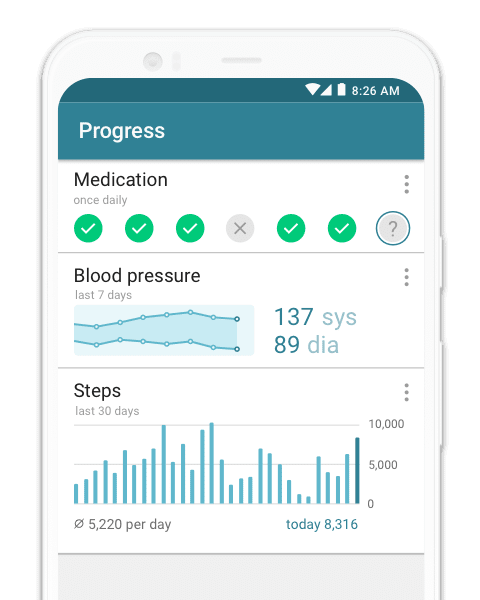Everyone feels bad sometimes, especially when coping with a chronic illness. Whether you’re in physical discomfort, or feeling down in the dumps, there’s some quick tricks that everyone should be aware of to try and pull yourself out of that slump. Obviously, there is no substitute for proper treatment, but sometimes listening to your favorite song, or just forcing yourself to take a quick walk can be the boost you need to make the most out of your day. In today’s blog we’ll cover some of our best tips for feeling better when you’re just having ‘one of those days.’
Music:
For most people, listening to or even making music is a hobby and a pleasure. However, what many people don’t realize is that music can produce significant psychological benefits. Think of the music that touches you most deeply or your favorite song, think of how strong the feelings it can produce are, regardless of what the feeling is. By understanding these effects, you can take advantage and make music a tool for when you need a boost the most. Listening to music that you find uplifting can provide an immediate boost to your mood and can help you focus better if you need to get something done. Of course in turn being productive may help you reduce stress further.
Even more impressive than music’s ability to improve your mental state, it has been shown to help patients with chronic illnesses such as fibromyalgia manage pain. Listening to one hour of music per day has been shown to produce a significant reduction in pain. Even better, these effects have been shown to stick around even after you’ve stopped listening to music, so long as you listen to it fairly regularly.
The best thing about using music as a form of therapy is that you can’t really do it wrong. You won’t overdose, you won’t make things worse, if the song you’re listening to isn’t making you feel better simply press skip. Anyone can use music to treat themselves. That said, if you’re interested in a more in-depth understanding of music therapy you may find this study interesting.
Meditation:
One of the most popular and talked about methods of self-care right now is meditation. With a huge surge of meditation apps it’s clear that this method has reached a large portion of the population. Unlike some other health fads, the benefits of meditation are based on legitimate scientific research. Studies have found that meditation has a strong ability to reduce stress and can reduce the physical symptoms that stress creates such as inflammation. (Click here if you’d like to read more about that) Furthermore, meditation promotes better overall mental health both in the short-term and long-term.
If meditation’s capacity for making you feel better isn’t reason enough to try it, research suggests it can also help fight addiction, improve sleep, reduce blood pressure, and slow age-related memory loss. As with music therapy, there’s really no downside to trying it. The huge surge in the popularity of meditation has made it incredibly accessible.
However, if you’re planning to try a meditation app, which is certainly the easiest place to start, you’ll want to look for one that has scientific evidence backing it up. Headspace, one of the top mindfulness apps currently has been backed up by various peer-reviewed studies and has been put to the test scientifically.
Be Active:
Most people know that exercise makes you feel better. It boosts chemicals in the brain that make you feel good such as endorphins, dopamine, and endocannabinoid. In turn, this can help reduce or eliminate negative feelings such as stress and anxiety. One major concern for many people is the lack of perceived accessibility that goes along with exercise. When you think of exercising your mind often goes to running or lifting weights, which may not be possible for people living with chronic illnesses. However, there are lots of forms of exercise that are very accessible, one of the best is yoga, which can be practiced in many forms and has great health benefits. You can read more about exercising with a chronic illness here.
Some of the benefits often associated with activities like running are also partially due to being outdoors and connecting with nature. Even if exercise is not an option, you may find that getting some fresh air and spending some time connecting with nature provides an emotional boost.
Connect with Others:
Humans have always been social creatures, and despite how disconnecting our modern-day world can be, this hasn’t changed. You can take advantage of this by getting in contact with someone when you’re feeling down. Even if you’re unable to meet in person, a phone call or video chat for 15-20 minutes can turn around a bad day. It may not help with any physical symptoms as much as the other methods mentioned but can certainly make a huge impact on your mental state.
Eat a Feel-Good Food:
When you read the words feel-good food, you might automatically think comfort food, which often means junk food such as chips or ice cream. While these foods can certainly make you feel good while eating them, you’re more likely to feel better for longer if you eat a food that’s so good for you it can make feel good. Fruits and vegetables, fish, nuts, and lean meats can all help you feel better and have more energy, especially if you eat them regularly. If you’re feeling down, a snack of an apple or orange paired with a handful or two of nuts can help set you in the right direction.
You should also ensure you’re getting plenty of vitamins, if you’re unsure about this it’s best to consult with your doctor. If they determine you need more vitamins they may suggest you take a vitamin supplement.
Here are some other articles we think you might enjoy:



